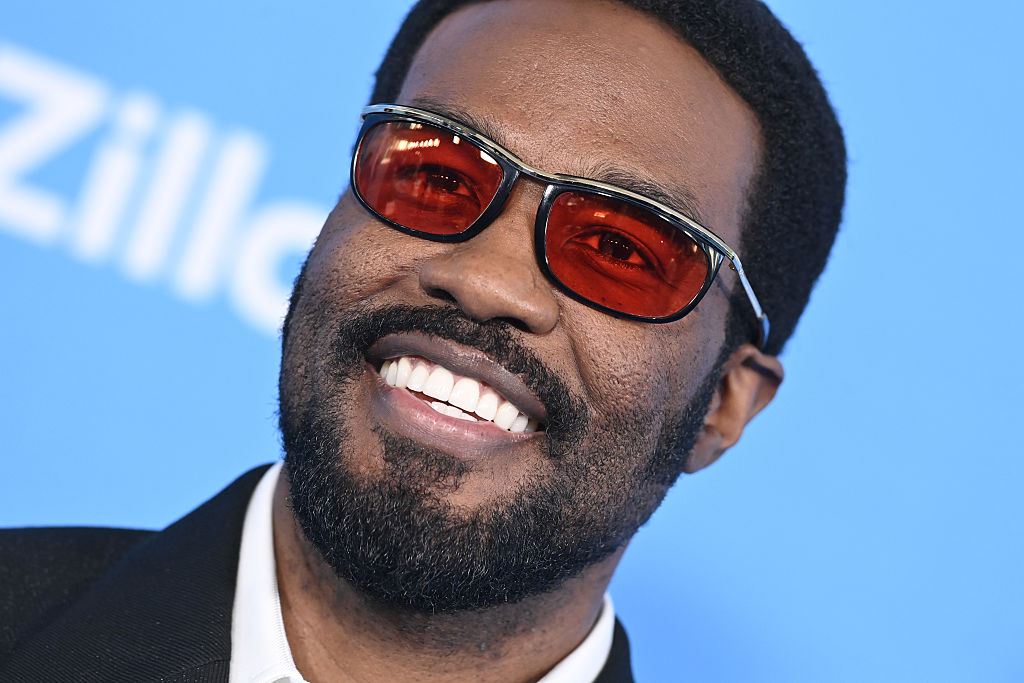Eriq La Salle Built A Legacy In Front Of And Behind The Camera
From ‘ER’ To ‘On Call,’ Eriq La Salle’s Built A Hollywood Legacy In Front Of And Behind The Camera

Source: Gilbert Flores / Getty
Eriq La Salle has spent decades redefining what it means to tell compelling, meaningful stories. From his unforgettable portrayal of Dr. Peter Benton on ER to roles alongside legends like Eddie Murphy in Coming to America and Robin Williams in One Hour Photo, La Salle has consistently left his mark as a skilled actor. With his latest project, On Call, La Salle combines his on-screen talent with his behind-the-camera expertise to offer audiences a fresh take on the police procedural genre.
In a recent conversation with GlobalGrind, La Salle opened up about the innovative storytelling techniques behind On Call, his thoughts on legacy, and his passion for creating opportunities for underrepresented voices in entertainment.
La Salle is no stranger to the police procedural genre, having served as executive producer and director on Chicago PD for years. But On Call offers something distinctly different.
“What excited me about On Call was the originality of how we tell the story,” La Salle shared with GlobalGrind. “We’re using body cams, dash cams, cell phones, and traditional studio cameras to immerse the audience. It’s like doing a ride-along—giving viewers a ‘fly-on-the-wall’ perspective of what officers experience daily.”
The half-hour streaming format added another layer of complexity. “We had to figure out the alchemy of how much of each camera style to use,” he explained. “But once we found the right balance, we stopped tinkering and let it work. The challenge of creating something fresh and engaging is what makes this project so fulfilling.”
In addition to serving as executive producer and director, La Salle takes on the role of Sergeant Lasman in On Call. The character is introduced largely through the lens of the show’s main character, Officer Traci Harmon (Troian Bellisario) creating a sense of distrust and misperception.
“My character, he’s not an angel or anything, but he has his ethics, his morals, and his professionalism,” La Salle explained. “She has her perception of him, which is off. He has his perception of her, which is off. And I thought that was just brilliant writing.”
La Salle continued, “At the end, people are like, ‘Oh!’ Including her—she’s like, ‘Whoa.’ Because then you start learning who this man really is. And it was right there in front of you. You were so focused on other things.”
The nuance and depth of the character align with a broader cultural theme La Salle believes the show explores. “That’s where we are in society right now. Media really doesn’t help,” he said. “We get sort of a half-assed notion about people or circumstances, and we run with it, and it becomes the gospel.”
La Salle relishes playing with audience expectations, a hallmark of the show’s writing. “At the end, you see who Lasman truly is, and it’s all been there in plain sight. It’s satisfying to play a character who surprises not only the other characters but also the viewers.”
Set in Long Beach, California, On Call uses its location as a key element of the storytelling.
“Los Angeles is overshot, but Long Beach has a unique character,” La Salle explained. “We want the location to be another character in the story. The light, the people, the food—it all contributes to the authenticity.”
To prepare for their roles, cast members participated in ride-alongs with local police officers. This real-world exposure helped shape the show’s grounded and nuanced depiction of law enforcement.
“Our goal is not to be pro-cop or anti-cop,” La Salle said. “We’re simply showing what these individuals deal with daily, creating a more empathetic and realistic portrayal.”
With over 25 years of directing experience, La Salle views his work behind the camera as a vital extension of his artistic and personal mission.
“My legacy has always been about self-empowerment,” La Salle said. “As an actor, your opportunities can be limited. When I act, if I’m lucky, maybe three other Black people act—maybe I get a wife, maybe I get a child. But as a director or producer, I can make decisions that change the narrative.”
For La Salle, this means creating opportunities for marginalized voices. “As a director, I can say, ‘Let’s cast a Latina judge,’ or ‘What if this character is an Asian woman?’ It’s about reflecting the world as it is and giving people opportunities to shine.”
He credits trailblazers like Dick Wolf and Pearlena Igbokwe at Universal for fostering his growth as a creative. “The Wolf camp has been incredible—respectful and meritocratic.” he said. “They treat me with such respect. The more you do, the better you do, the more opportunity they give you.”
La Salle’s career is a masterclass in reinvention and resilience. From ER to directing episodes of Law & Order and writing critically acclaimed thrillers like Laws of Depravity, his body of work reflects a commitment to excellence and innovation.
“I grew up with a Black mother who always told me I’d have to run faster and jump higher to be seen as equal,” La Salle said. “It’s not enough for me to act. It’s not enough.”
For La Salle, his legacy is about demonstrating that hard work and perseverance can create opportunities for others. “You just have to dig in deeper. You have to do more. But if you do more, ultimately, you’ll get more,” he said.
Whether behind the camera or in front of it, La Salle continues to set the bar high for what’s possible in Hollywood. With On Call resonating globally—it’s currently number one in over 40 countries—La Salle’s vision for storytelling is clearly connecting with audiences. And while he’s hopeful for a second season, he’s already thinking ahead to new challenges and opportunities to empower others.
Season 1 of On Call is currently streaming on Prime Video.












